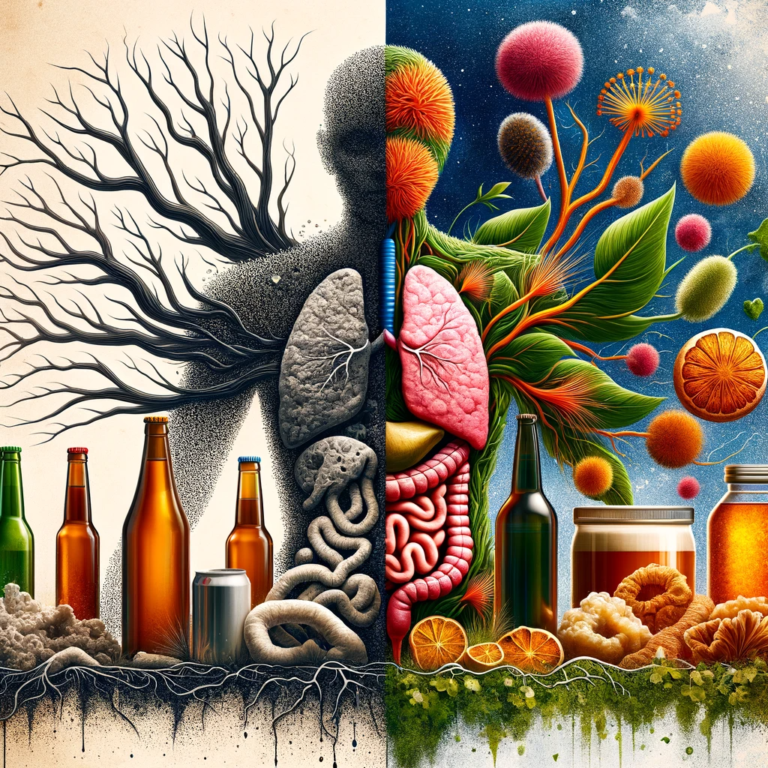The gut microbiome and healthy aging

Introduction
The human body harbors a complex and dynamic microbial community, which includes bacteria, fungi, viruses, and protozoa. The gut microbiota is often referred to as the “forgotten organ” because of its essential roles in maintaining health through multiple physiological processes including food digestion and metabolism, immune function, as well as production of vitamins. Although studies have focused on the role of gut microbiome in the pathogenesis of diseases such as infection and cancer, recent advances in understanding how this ecosystem changes with age may lead to novel therapeutic approaches for healthy aging by targeting specific elements of the gut microbiota.
Roles of the microbiome in health and aging
The gut microbiome is a complex ecosystem of tens of trillions of microorganisms that share a symbiotic relationship with the host. The microbiome performs a wide array of functions, such as regulating metabolism, immune function and brain function. In turn, the host provides nutrients to support the growth and survival of beneficial microbes. This interaction between microbial community and host can influence health and aging through multiple mechanisms including modulation of gut barrier integrity, immune homeostasis, metabolic regulation, neural signaling (neurotransmitter production), inflammation resolution/resolution capacity and longevity gene modulating pathways.
Factors that influence the gut microbiome during healthy aging
Lifestyle factors such as diet and stress can have a big impact on the gut microbiome during healthy aging. For example, a diet high in fiber has been shown to promote a healthy gut flora that helps fight off infections by producing important vitamins and fatty acids.
In addition to diet, stress is also known to influence the composition of our gut microbiota. Stressful events have been shown to cause an increase in inflammation and oxidative stress within our bodies which can negatively impact both the immune system and our overall health. The good news is that there are ways we can reduce our perceived level of stress: getting enough sleep each night, exercising regularly (at least 30 minutes per day), meditating or practicing yoga are just some examples!
Antibiotics can also negatively affect your microbiome by eliminating beneficial bacteria while allowing harmful bacteria to grow unchecked – leading to antibiotic resistance when you need antibiotics again in future years as well as making you more susceptible to illness due to weakened immune function caused by decreased diversity!
The gut microbiome as a mediator of age-associated diseases
As we age, our gut microbiome changes. This can have a significant impact on health and disease progression. For example, studies have shown that the gut microbiome is altered in people with obesity or diabetes. In particular, there’s been some evidence that an overabundance of certain types of bacteria may contribute to these conditions. In addition to these diseases, other disorders including cancer may also be related to changes in the population and/or function of microbes in your body.
The role of diet in promoting healthy aging has been well established, but researchers are just now beginning to explore how diet influences your gut microbiome as you age—and whether those effects could play a role in preventing disease later on down the road
Probiotics and prebiotics as therapeutic interventions
You may have heard the term “probiotics” before. But what are they, and how do they work? Probiotics are live microorganisms that, when administered in adequate amounts, confer a health benefit on the host.
Prebiotics are non-digestible food ingredients that stimulate the growth and/or activity of beneficial bacteria in the colon. Prebiotics aren’t digested by you; instead, they’re fermented by your gut microbes into short-chain fatty acids (SCFA), which nourish your microbiota.
How exactly do these two categories of supplements work together to keep our bodies healthy?
The recent advances in our understanding of the gut microbiota have brought it to the forefront in studies on healthy aging, with promising findings and great potential for clinical applications.
The gut microbiome is an important regulator of human health and aging, especially in the context of age-related diseases. It has been shown that gut microbiota can affect metabolic and immune functions by influencing their composition and diversity. The recent advances in our understanding of the gut microbiota have brought it to the forefront in studies on healthy aging, with promising findings and great potential for clinical applications.
Conclusion
This brief review of the literature has shown that the role of the gut microbiome in healthy aging is complex and multifactorial. However, it is clear that the microbiota could be a promising target for interventions aimed at promoting healthy aging. In this regard, probiotics and prebiotics are being used as therapeutic strategies in humans with positive results.




